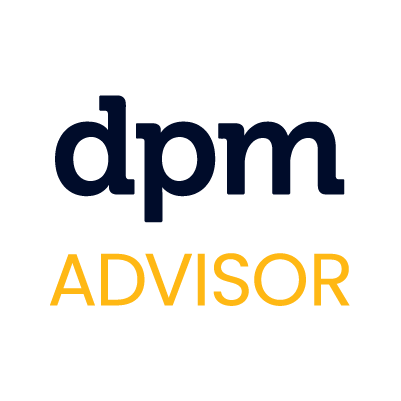One of the most defining things about the role of a is that you often have to be comfortable being the “bad guy,” but it’s still no fun! Since it is typically our responsibility to make sure the meets the , and make things happen the way that they are supposed to, PMs frequently monitor the workflow of other and will, from time to time, have to step in and course correct or apply some pressure to make sure all of the needs of the are being met.
Making sure that deadlines are observed is one of the biggest challenges for PMs, largely due to the fact that even though you can support your in a hundred ways, you can’t do someone’s FOR them, and you probably don’t have time to sit around all day watching people to make sure they will get their done on time. So, here’s so that you set your and yourself up for success and avoid launching into “bad cop” mode or micromanaging people to ensure they are .
1. Set Clear Expectations From The Start
You should have several opportunities at the beginning of a to clearly communicate to your when the is expected to be complete. Deadlines should be one of the first things mentioned during kickoff meetings and onboarding, and your statement of , , or any documentation that the has access to should clearly state any relevant deadlines. At kickoff, I like to distribute a brief to the that outlines key objectives and milestones with deadlines attached – and I will always make sure that there is no confusion about who is responsible for which items.
During kickoff meetings I also ask and make sure that there is no confusion. Simply closing your meeting/huddle by asking “Does everyone know what they’re doing and when it’s due?” never hurts! Hopefully you’ve also built a relationship with your wherein they know they can always speak up or ask you if something is not clear.

2. Be A Team Player
Speaking of relationships, I’ve said it before and I’ll say it again: so much of is about trust, honesty, and making sure that your is comfortable coming to you with issues before they become PROBLEMS. The best way to build these relationships is to be ON the , instead of positioning yourself as the -wielding overlord. Simply framing your role as one of support rather than punishment can go a long way.
Make sure you communicate to your daily, via words and actions, that you are there to help them succeed, not to watch them flounder and fail. People will also be motivated to when they feel a responsibility to contribute to the success of the whole , rather than just getting stuff done to avoid a scolding from the PM.

3. Check Up On It
I’ve written before about the importance of checking in – whether it’s daily, weekly, or monthly – with your projects and your people. These check-ins are incredibly important when it comes to the pace of a and making sure you are on target to meet your deadlines. A simple check-in daily or weekly with your to make sure they aren’t running behind is essential.
The benefits of checking in also go two ways: this gives the member a chance to raise any concerns they have about timing, (and they’ll be honest with you if you’ve established the right kind of relationship,) and it also gives you, as the PM, a clear picture of where you stand and if there are any worries about potentially not being ready on time. This can be informal, even done via IM or a quick in-person conversation.
4. Show The BIG Picture
Frequently, when projects have lagged or deadlines have been missed, I look back and realize a factor was that the or individual didn’t fully grasp the importance or value of the to the agency or to the client. Again, right from kickoff, make sure that your knows how each piece of the fits together to achieve the end result, product, or , and highlight the importance of each milestone to your overall success.
Sometimes it can be easy when you’re working on a million things to deemphasize the importance of one ticket. If a person has a sense of how their contribution affects the whole, they will often be more likely to deliver on time. This is another item you can add to your kickoff protocol – reinforce the idea that every small matters and the goals can’t be met without total buy-in from each player.
5. Make Sure The Information Is Always Available
As we all know, there are as many different kinds of resource management tools and systems for as there are managers – but one thing they should all have in common is a way for your to easily access information when they need it. This includes tasks, deadlines, and any other pertinent details to completing the well and on time.
In addition to distributing a or brief at kickoff, make sure that you have documented the information in a place where folks can easily find it. This is your insurance policy against things like “well I didn’t know when it was due!” or “I wasn’t sure how long I had.” Personally, I like to create to-do lists for each member of the that simply outline and deadlines, using Trello. This way I know that everyone has access to their list no matter where they are.
Related Read: How To Leverage People Data To Run High-Performance Project Teams
6. Maintain A Healthy Workload
Sometimes, things get crazy, especially when you and your members have in progress. This is an unavoidable reality of -based , and hey, it keeps life interesting, right? Even though there will be some busy weeks and maybe even some overtime here and there, it’s your responsibility as a to make sure your ‘s workload is manageable and that it’s realistic for them to meet the . Frazzled, overworked employees are way more likely to lose interest and enthusiasm for the , make sloppy mistakes, or forget things.
Although no one can guarantee smooth sailing all of the time, try to use your weekly/monthly sessions to make sure that everyone’s workload is manageable, and try to foresee traffic jams and overload before it’s too late. If you watch out for your and make sure they are being given ample time and resources to get their done, it will surely minimize the amount of time your have to spend micromanaging people for things, or worse, apologizing to clients for a .

If you’ve read any of my previous articles, you know by now that I am constantly reiterating the importance of relationships, honesty, and trust when it comes to . Sometimes, especially in digital agencies and shops, it’s easy to forget that isn’t all about spreadsheets and .
In fact, I believe that most of the skills needed to excel in this job aren’t technical, but rather innate. When it comes to championing your to get done on time, this is more true than ever. Hopefully with these tips you will save yourself some time by not having to chase people down for their .
Need expert help selecting the right Project Management Software?
If you’re struggling to choose the right software, let us help you. Just share your needs in the form below and you’ll get free access to our dedicated software advisors who match and connect you with the best vendors for your needs.
What Do You Think?
Do you have any other ideas? What do you do to make sure your meets a ? Tell me in the comments!
If you’re looking for tools to help with your processes, start here:



